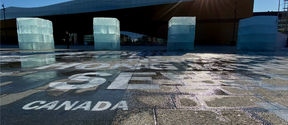Robotics needs safe behavior patterns

Shankar Deka is an Assistant Professor at the Department of Electrical Engineering and Automation. In the future he expects a far greater societal acceptance and trust in intelligent systems.
What are you researching and why?
My research deals with certifiably safe and robust control design for robotic, learning-enabled, and cyber physical systems. Modern systems are growing in complexity and sophistication, as we push their performance towards their extremes. But this can sometimes come at the expense of higher risks of failures. A common example is self-driving cars getting confused by road signs and veering off course. Needless to say, it's therefore critical to design algorithms that generate provable safe behaviors as well as are robust to external perturbations and uncertainties in the model of the system and the environment it interacts with. To achieve that, my research investigates creative ways to combine tools from nonlinear control theory, optimization, and machine learning.
How did you become a researcher?
I started to develop a liking for research during my undergrad when I was working on a project with a robotics professor, immediately followed by a five-month long R&D internship at an automotive company. From there on, my interests only got stronger throughout grad school, where I was researching medical robots, and I wanted to just keep going. After a few years of postdoc at Berkeley and KTH, here I am. I feel extremely fortunate that I had so many wonderful opportunities working with talented colleagues and caring advisors who guided my path to becoming a researcher.
What is the high point of your career so far?
There have been several memorable moments in the past years. The most recent one is perhaps when I got to conduct really cool robotics field experiments in an Italian vineyard in the scenic suburbs of Rome last summer. Field work presents a whole new level of real word engineering challenges outside of a controlled lab setting, so passing this ultimate test really felt like a high point. And of course, joining Aalto as an Assistant Professor is another major turning point in my career and I'm very proud to be a part of this community.
What do you expect from the future?
The field of autonomous systems and AI is very dynamic and is evolving at a fast pace, which makes it hard to predict where things will be head towards in the next 20 years. But I expect a far greater societal acceptance and trust in intelligent systems. Imagine fully autonomous surgical robots operating on humans and saving lives in remote locations like the ISS or deep sea submarines. Turning this into a reality will not only require cutting edge collaborative research between academia and the industry, but also close partnership with policy-makers and stakeholders, and I am keen to closely witness this promising future for trustworthy AI unfold.
Research group page: Nonlinear Systems and Control
- Published:
- Updated:
Read more news

Aalto Open Science Award ceremony brought together Aaltonians to discuss open science
Last week we gathered at A Grid to celebrate the awardees of the Aalto Open Science Award 2023 and discuss open science matters with the Aalto community.
Seed funding available to boost collaboration between Aalto, KU Leuven and University of Helsinki
Aalto University, KU Leuven and the University of Helsinki launch the 2nd exploratory seed funding call to explore research collaboration possibilities. The funding call is open until 10 September 2024.
Professor Peter Hans Matthews works as a Fulbright-Aalto Distinguished Chair scholarship holder at the Department of Economics
Fulbright programmes and scholarships are highly appreciated in the United States